Introduction
When we are in the clutches of diagnosing type- 2 diabetes, we often become powerless as it is a lifelong condition, and there’s nothing much to do about it. Whether pre-diabetes or diabetes, it is possible to reverse through a guided diabetes reversal program.
When we say reversing diabetes, it means controlling high blood sugar levels over an extended period without medication or HbA1c is less than 6.5% and stays in this range for at least 6 months without medications.
Understanding Diabetes
- Type 1 diabetes is an autoimmune condition where the body’s immune system mistakenly attacks and destroys insulin-producing cells in the pancreas. There is no proven way of curing or reversing this diabetes.
- Insulin is the hormone secreted by the pancreas that regulates the body’s use of sugar. Type 2 diabetes is characterised by insulin resistance and the body doesn’t make enough insulin or utilise insulin well, resulting in too much glucose in the blood. It can be managed or even reversed with lifestyle modifications.
- According to the International Diabetes Federation 2015, around 69.2 million people have diabetes mellitus in India.
- Many are in the prediabetic stage and often do not realise it, ultimately falling into the condition.
- Type 2 diabetes can be developed at any age, even during childhood, but mostly occurs in middle-aged and older people.
The possible risk factors that can cause diabetes and pre-diabetes are :
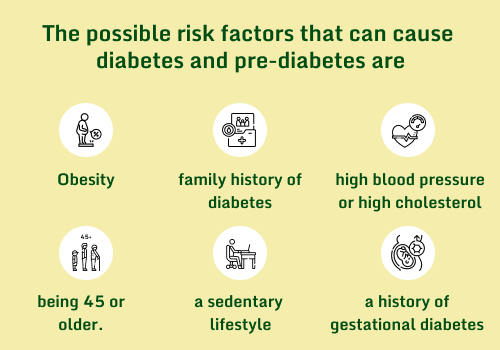
- Obesity.
- Family history of diabetes.
- High blood pressure or high cholesterol.
- Being 45 or older.
- A sedentary lifestyle.
- A history of gestational diabetes.
What is a Diabetes Reversal Program?
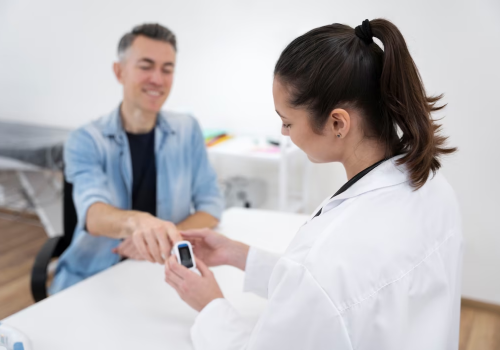
Some of the strategies employed in the diabetes reversal program are-
- Effective and doable weight loss strategies
- Right kinds of exercise
- Supplements
- Diet
- Stress control techniques
Steps Involved To Reverse Diabetes
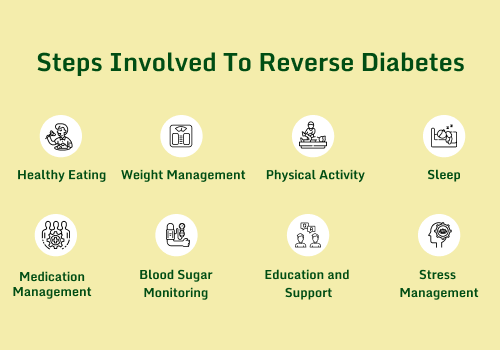
Diabetes is linked to various health problems such as -heart disease, stroke, nerve damage, kidney disease, foot problems, eye and gum disease, sexual and bladder problems, sleep apnea, depression and dementia. It is crucial to keep diabetes in check by adopting lifestyle changes.
A Diabetes Reversal Program typically involves the following components:
1. Healthy Eating:
2. Weight Management:
3. Physical Activity:
- Regular exercise helps lower blood sugar levels, improves insulin sensitivity, and contributes to weight management.
- Include muscle-building exercises that are a combination of cardio and strength training exercises.
- At least 150 minutes of exercise each week, or 30-45 minutes, five days a week is recommended to lose weight and prevent blood sugar fluctuations.
- A high-intensity interval training (HIIT) in 10-minute sessions three times a day also is recommended for people with less time.
- Be consistent with physical activities to get maximum long-term benefits.
4. Medication Management:
- Diabetes medicines include pills or insulin.
- Instructions regarding the usage and dosage of medicines will be given by the healthcare provider.
- As the condition improves, the doctor may adjust or discontinue medications.
5. Blood Sugar Monitoring:
- Regularly monitor blood sugar levels to track progress and adjust the lifestyle and medications accordingly.
- Sugar monitoring by poking the fingertips and using a blood glucose meter or a continuous glucose monitor (CGM) to measure the blood glucose level instantaneously.
- HbA1c is the average blood glucose level for the last two to three months. In diabetes conditions, an ideal HbA1c level is 48mmol/mol (6.5%) or below.
6. Stress Management:
- Chronic stress can affect blood sugar levels and hamper diabetes management.
- The primary stress hormone cortisol triggers an increase in appetite leading to overeating and weight gain.
- Practice meditation, deep breathing or yoga to manage stress.
7. Sleep:
- Prioritise getting enough quality sleep as sleep deprivation can impact insulin sensitivity, blood sugar levels, managing weight and overall well-being.
- A proper sleep schedule, decreased stress, relaxation techniques before bedtime, a comfortable sleep environment and addressing sleep disorders help with diabetes management.
8. Education and Support:
- Participate in diabetes education programs and webinars and seek support from healthcare professionals, dietitians or support groups.
- They provide valuable information and encouragement to continue our efforts without quitting.
Is it possible to completely get rid of diabetes?
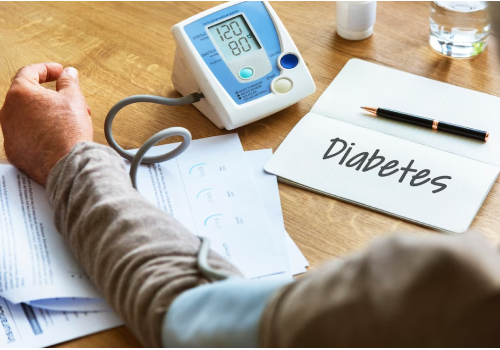
- At present there is no way to prevent or cure type 1 diabetes. People with type 1 diabetes rely on insulin therapy to manage their blood sugar levels and stay alive.
- Type 2 diabetes is a progressive condition often associated with lifestyle factors, such as obesity and physical inactivity.
- It can be managed through lifestyle changes such as healthy eating, regular exercise and weight management.
- Diabetes management aims to keep blood sugar levels within a target range to prevent complications and enhance the quality of life.
- Working closely with healthcare providers, type 2 diabetes may achieve remission, which means their blood sugar levels return to normal without diabetes medications.
- This remission can be maintained through continued healthy habits. However, it’s important to note that diabetes can still return if a person’s lifestyle changes revert to previous unhealthy behaviours.
Who should enrol for the Diabetes Reversal Program?
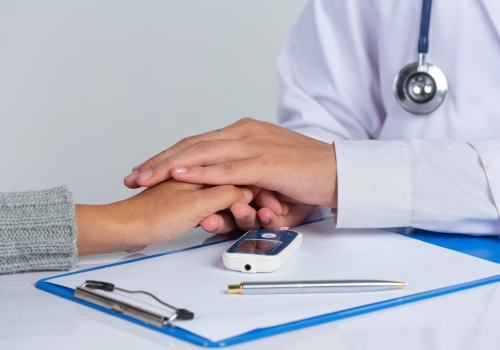
-
- A Diabetes Reversal Program is designed for individuals with type 2 diabetes or those at risk of developing type 2 diabetes.
- It aims to help individuals improve their insulin sensitivity, manage blood sugar levels and potentially achieve remission from type 2 diabetes.
- It is designed for individuals who recently or within the past five years were detected with Diabetes or have an existing Type 2 Diabetes.
People who may benefit from enrolling in such a program include:
- Individuals with Type 2 Diabetes: If diagnosed with type 2 diabetes recently, a Diabetes Reversal Program can benefit in managing the condition and achieving remission through lifestyle changes.
- Prediabetic Individuals: In prediabetes, blood sugar levels are higher than the normal range but can’t classify as type 2 diabetes. Enrolling in a Diabetes Reversal Program can help prevent or delay the onset of type 2 diabetes.
- Individuals with Risk Factors: People with risk factors for type 2 diabetes may benefit from participating in the program to reduce the risk of developing the condition.
- Individuals with well-controlled Type 2 Diabetes: People with well-controlled type 2 diabetes with medications can participate in this program that improves overall health.
What Is Included in the Diabetes Reversal Program?
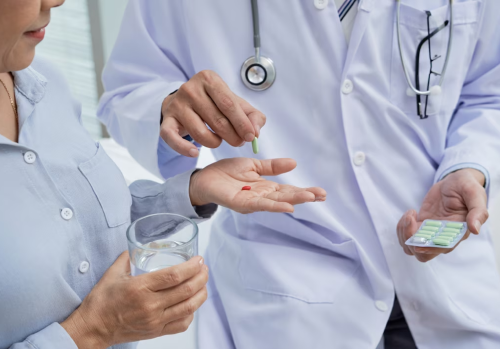
On enrolling for the Diabetes Reversal Program, based on the provider or healthcare facility, focus on lifestyle changes, education, and support to help manage and potentially reverse type 2 diabetes.
Some common elements often included in such programs are listed below:
- Medical Assessment: The program usually begins with a thorough medical evaluation, review of medical history, physical examination and blood tests to assess blood sugar levels, lipid profile etc.
- Individualised Meal Planning: A registered dietitian or nutritionist works with participants to create personalised meal plans that emphasise balanced meals.
- Physical Activity Guidance: The program recommends appropriate physical activities, like aerobic exercises, strength training and flexibility exercises, tailored to each individual’s fitness level and abilities.
- Weight Management Strategies: For individuals who are obese, the program guide on achieving and maintaining a healthy weight through diet and exercise.
- Blood Sugar Monitoring: Participants learn how to monitor blood sugar levels regularly and interpret the results to understand the improvement with lifestyle changes.
- Medication Management: The program help participants understand when and how to take medications in coordination with lifestyle changes.
- Stress Management Techniques: Stress management techniques, such as mindfulness, meditation or relaxation exercises, may be included to help participants cope with stress effectively.
- Education and Self-Management Skills: Participants are enlightened with information about diabetes and learn self-management skills to make informed decisions about their health.
- Group Support and Counseling: The group sessions discuss experiences, challenges, and successes with participants, including counselling sessions, emotional support and motivation.
- Long-Term Support: Diabetes is a lifelong condition and ongoing support is essential. The program may offer follow-up sessions, online resources and referrals to support groups to help participants maintain their progress and continue their diabetes management journey.
Diabetes Reversal In Bangalore
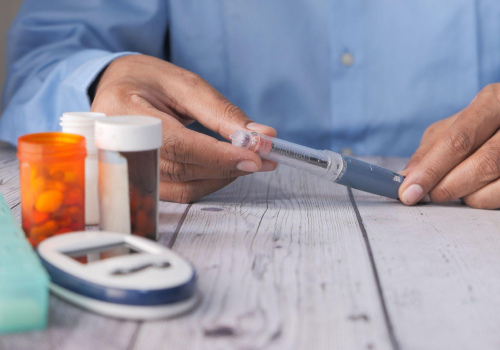
Satva Clinic is a leading diabetes clinic in Bangalore that provides comprehensive diabetes care and treatment. Qualified diabetes specialists here help patients manage the condition and prevent complications.
- At Satva, we provide personalised treatment plans tailored to the needs of each patient.
- Our clinic emphasises lifestyle modifications- diet and exercise to help patients manage diabetes effectively.
- We utilise the latest technology and equipment to ensure accurate diagnosis and treatment.
- The Diabetes reversal and wellness program at Satva is sustainable and easy to follow.
Click here for diabetes reversal-Bangalore at Satva and get your comprehensive diabetes consultation.
 +91 9164688217
+91 9164688217 080-8035875605
080-8035875605
 Time 7.30 am to 9 pm (Monday to Saturday)
Time 7.30 am to 9 pm (Monday to Saturday) Time 8 am to 1 pm (Sunday)
Time 8 am to 1 pm (Sunday) Satva speciality clinic and preventive health centre: RBI Layout, Kothanooru Main Road, J.P. Nagar, 7th Phase Bangalore 560078
Satva speciality clinic and preventive health centre: RBI Layout, Kothanooru Main Road, J.P. Nagar, 7th Phase Bangalore 560078







Leave a Reply